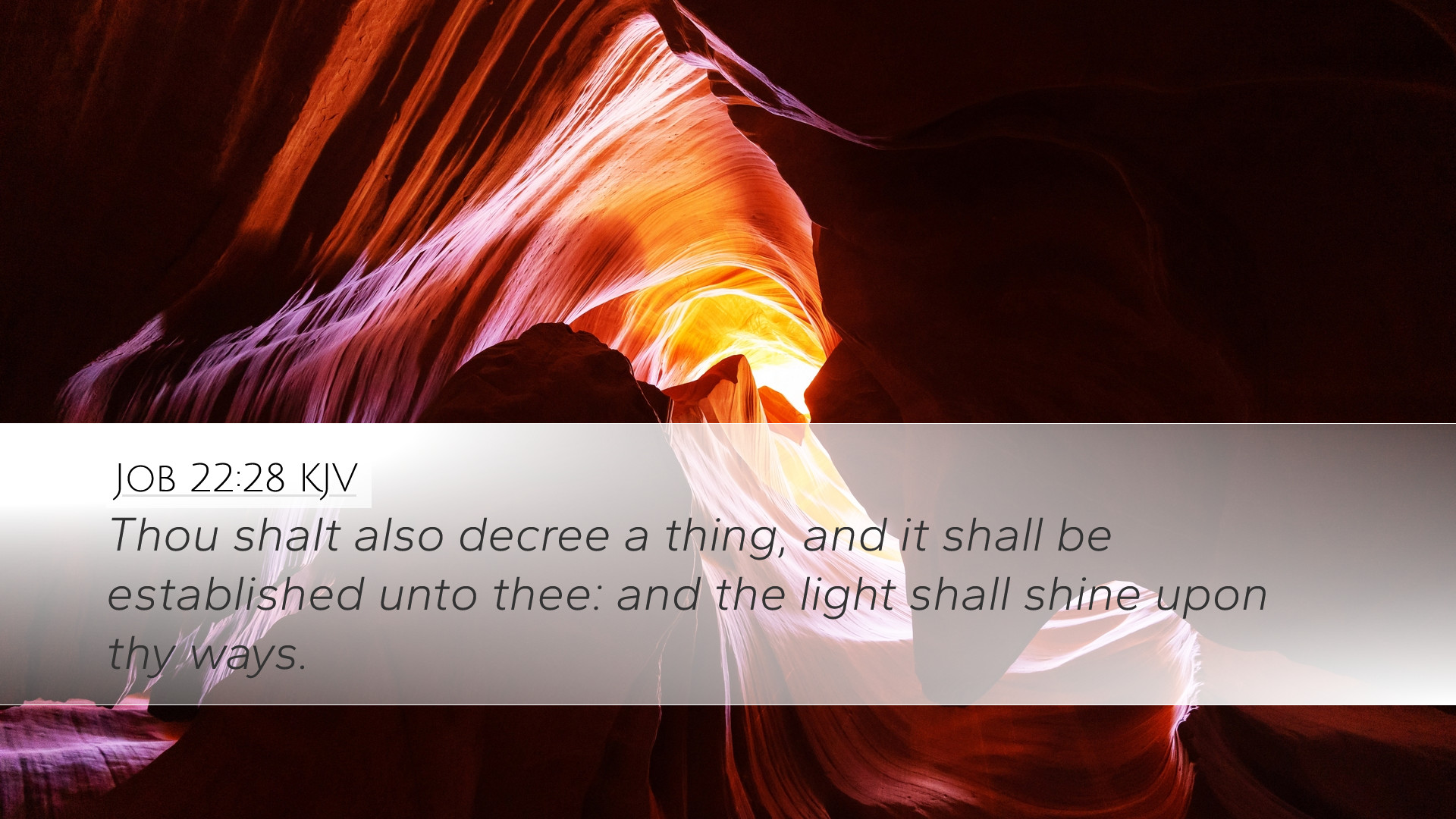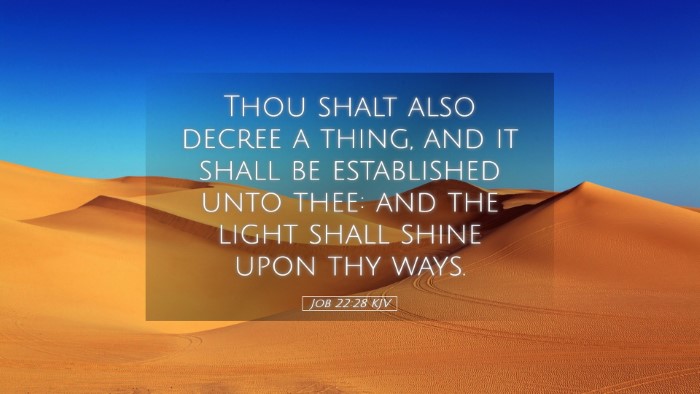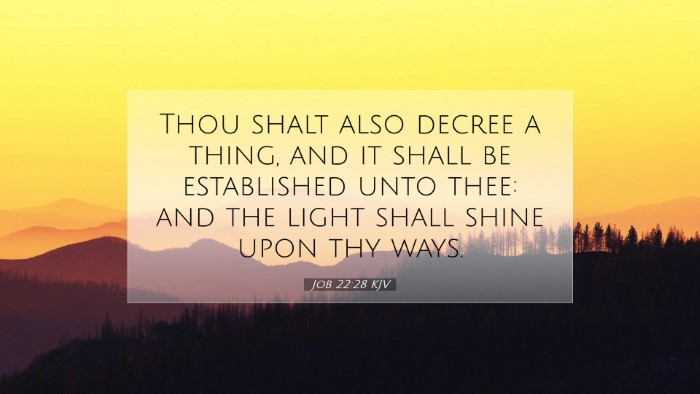Old Testament
Genesis Exodus Leviticus Numbers Deuteronomy Joshua Judges Ruth 1 Samuel 2 Samuel 1 Kings 2 Kings 1 Chronicles 2 Chronicles Ezra Nehemiah Esther Job Psalms Proverbs Ecclesiastes Song of Solomon Isaiah Jeremiah Lamentations Ezekiel Daniel Hosea Joel Amos Obadiah Jonah Micah Nahum Habakkuk Zephaniah Haggai Zechariah MalachiJob 22:28
Job 22:28 KJV
Thou shalt also decree a thing, and it shall be established unto thee: and the light shall shine upon thy ways.
Job 22:28 Bible Commentary
Commentary on Job 22:28
Verse Reference: Job 22:28 - "You will decree a thing, and it will be established for you; and light will shine on your ways."
Contextual Overview
The Book of Job deals with profound themes of suffering, divine sovereignty, and the nature of human righteousness. In this particular chapter, we find Eliphaz the Temanite responding to Job's lamentations and accusations towards God. Eliphaz's statement reflects a common belief in the principle of retributive justice, which asserts that good is ultimately rewarded, and evil is punished within the framework of earthly existence.
Insights from Public Domain Commentaries
Matthew Henry's Commentary
Matthew Henry emphasizes the power of faith in one's declarations and decisions. He notes that when one is in righteous standing with God, their words and intentions align with divine will.
- Decreeing a Thing: Henry suggests that to decree something is to assert an intention with authority grounded in faith. The connection between what a person decrees and its establishment lies in the individual's relationship with God.
- Light Will Shine: The 'light' refers to divine guidance and the confirmation of one's steps when aligned with God's purposes. This illumination serves as a metaphor for understanding and clarity in life's decisions.
Albert Barnes' Commentary
Albert Barnes provides a more practical interpretation of the verse, stressing the importance of confidence in God. He suggests that this verse is not just about making declarations but emphasizes a broader principle of trust in God's providence.
- Establishment of Decrees: Barnes points out that any decree made in accordance with God's will shall be fulfilled. However, he cautions against the presumption of assuming that all desires can be realized merely by spoken word.
- Shining Light: He observes that the promise of light implies that those who walk uprightly will find clarity and divine help. In essence, it encourages believers to pursue righteousness for spiritual discernment.
Adam Clarke's Commentary
Adam Clarke offers a more detailed theological perspective on the implications of Job 22:28. He highlights the associative nature of decrees and their divine backing.
- Authority of Speech: Clarke discusses the gravity of speech in biblical times, where declaring something carried significant weight. Our words can influence reality when they align with divine intentions.
- Divine Light: Clarke elaborates that the light referenced is not merely an external phenomenon but a reflection of internal wisdom and understanding bestowed upon those who seek God earnestly.
Theological Implications
The combined insights from these scholars illustrate several key theological principles:
- Faith and Decrees: The act of making declarations based on faith is foundational in the Christian experience. Believers are encouraged to align their desires with God's character and will, ensuring that their decrees reflect His righteousness.
- God's Providence: The verse underscores the notion of God’s direct involvement in the affairs of humanity, particularly in the context of faithful followers. When such individuals decree actions in alignment with their faith, they can expect divine support and guidance.
- Light as Guidance: The theme of light shining on one’s path evokes the imagery of divine revelation and guidance. The passage reassures believers that commitment and faithfulness will lead to clarity in decision-making.
Application for Pastors, Students, and Theologians
The insights gained from Job 22:28 are critical for those engaged in ministry, study, and scholarship. Pastors can derive messages that emphasize the faith-filled declarations of believers, encouraging congregants to speak life and truth based on their covenant relationship with God.
For students and theologians, this verse presents a rich subject for reflection on the nature and consequence of human speech, the alignment of personal desire with divine will, and the implications of righteous living in a fallen world.
Overall, Job 22:28 serves as a profound reminder of the interconnectedness of faith, speech, divine authority, and the promise of guidance, fostering deeper theological inquiry and practical application for all believers.


